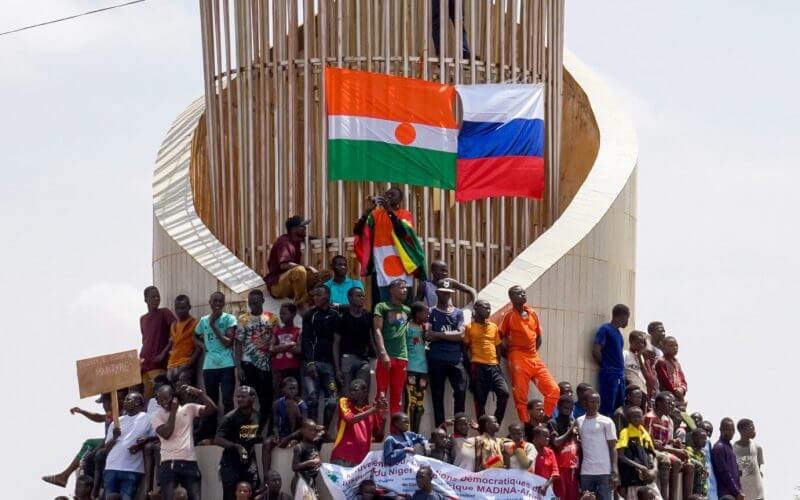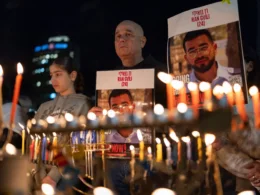1. Last African Country to Fall
Experts say that if the coup in Niger succeeds, it will be the latest African country to become ruled by a military junta. Since 2020, multiple democratically elected governments have fallen in Africa, including Mali, Burkina Faso and Guinea. Following the election of Mohamed Bazoum, Niger began to see the promotion of women's education and economic revival, which experts say was an impressive change in the country's history. In addition to trying to improve his country's economy, Bazoum was seen as a friendly figure to the United States and France and a potential ally in the fight against Russian and Islamist influence in Africa. Both countries have contributed billions of dollars in foreign aid, making up 40% of Niger's national budget. Experts say the close alliance with America and France has made Niger safer from Islamist violence, improving the safety and security of Niger in a region fraught with violent turmoil.
2. Military-Sponsored Coup
According to reports, in late July, a faction of the Niger military overthrew President Bazoum, citing the "deteriorating security situation" in the ongoing fight against Islamist groups that drew in the U.S. and other Western nations, installing General Abdourahmane "Omar" Tchiani as the country's new leader. Reports say the army's dissatisfaction against the democratically elected government came in response to the ongoing losses and lack of support against various insurgent groups, which began in 2011 after terrorist fighters from Libya scattered throughout the Sahel region. Members of the Bazoum administration have called on the people of Niger to resist the coup, raising concerns of potential civil war. The country's prime minister and ambassador to the U.S. have called on world leaders to reverse the coup. In response to condemnation from neighboring countries and their newly imposed sanctions against Niger, General Tchiani has labeled such actions "illegal, unjust, and inhuman."
3. Loss of Counterterrorism Operations
For the U.S. and other Western nations, Niger remains a critical country in the fight against radical Islamist terrorism, with officials calling it the "cornerstone" of regional antiterrorism operations. In addition to having thousands of troops in the country and military bases, the U.S. and France have relied on Niger for intelligence-gathering operations. Since the 2011 uprising in Libya, radical Islamist terrorists have scattered throughout West Africa, instigating violent sectarian wars against various governments and minorities. After the expulsion of French forces last year in Burkina Faso and Mali after the army overthrew the democratically elected government, violence and chaos took over the region. Experts warn that if radical Islamist extremists in Niger potentially seep in and take over the country, the U.S. and its Western allies could lose a critical foothold in the fight against terrorism, creating a new sanctuary for enemies of the West.
4. American Exit
Since the coup, the Biden administration has sent officials to talks with Niger's junta leaders, urging them to cease their actions and release the detained leader. U.S. officials and regional leaders in Africa have told coup leaders to abandon their overthrow of the democratic government or risk a military confrontation with neighboring states in the Economic Community of West African States (ECOWAS). The U.S. government has stopped more than $100 million in security and development assistance to the government in response to the coup while not changing its military posture in the country. The U.S. embassy remains open to provide emergency services for American citizens, and consular services remain active for emergency cases. The State Department has issued a notice not to travel to the country.
5. Russian and Islamist Influence
In the streets of Niger, supporters of the coup have been seen holding Russian flags in central Niamey, with some chanting slogans in favor of President Vladimir Putin. While experts say there is little proof to support the notion that Russia has a hand in the coup, they note that the unrest and chaos in Niger can potentially benefit Moscow. A few days ago, Yevgeny Prigozhin, the Russian oligarch whose Wagner mercenary paramilitaries were sent to Mali, pitched his services to Niger's coup leaders. Last week, one of the coup's leaders traveled to Bamako, where he met with Malian and Wagner officials, prompting concern among Western nations. Experts note that radical Islamist influence could also use the chaos and unrest in Niger for sanctuary in the heart of West Africa.
Related Story: U.S. Spent Years Funding and Training the African Military That Just Overthrew its U.S. Backed Gov’t









